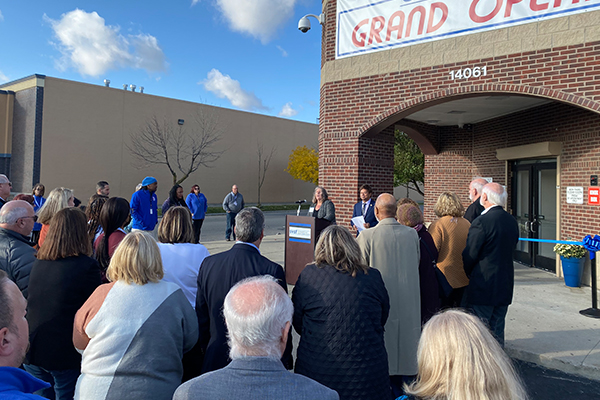 Detroit, Michigan — The Saint Vincent and Sarah Fisher Center, Michigan’s oldest continually-operating non-profit organization, opened the doors to its new headquarters and main campus on Detroit’s east side. Bill Vogel, President of Vogel Advisors, led the multi-year search for a new facility for the organization.
Detroit, Michigan — The Saint Vincent and Sarah Fisher Center, Michigan’s oldest continually-operating non-profit organization, opened the doors to its new headquarters and main campus on Detroit’s east side. Bill Vogel, President of Vogel Advisors, led the multi-year search for a new facility for the organization.
Founded in 1844, the Center has served the youth and underprivileged of Detroit for over 175 years. The 36,000 square foot, single-story building located at 14061 Lappin Street is strategically located in the heart of the Center’s mission population. This will allow the organization to continue to provide services to those in need, including tutoring and reading support for youth, and GED and job-placement assistance for adults.
The St. Vincent and Sarah Fisher Center was named a 2022 Best of MichBusiness winner in the non-profit category by Corp! magazine, and its CEO Ms. Diane Renaud was named to the Crain’s Detroit 2022 list of Notable Women in Nonprofits.
About Vogel Advisors
Vogel Advisors is an independent commercial real estate brokerage providing strategic solutions for business owners and corporations. Since 2005, the firm has provided its clients with strategic, conflict-free, high-advocacy representation in sophisticated commercial real estate transactions. Services include tenant representation, lease renewals and modifications, purchase and sale brokerage, sale-leaseback advisory and §1031 exchange advisory.
Additional information is available at www.vogeladvisors.com and on the company’s LinkedIn and X (formerly Twitter) pages.
###
Commercial real estate in Detroit, Michigan
Office space in Detroit, Michigan
Tenant representation in Detroit, Michigan
Leasing office in Detroit, Michigan
Commercial real estate in Wayne County, Michigan
Office space in Wayne County, Michigan
Tenant representation in Wayne County, Michigan
Leasing office in Wayne County, Michigan
